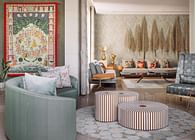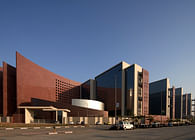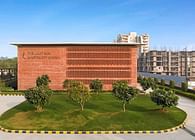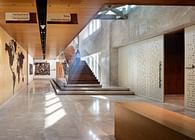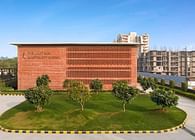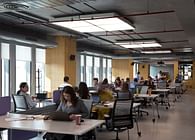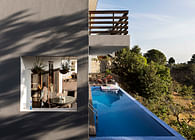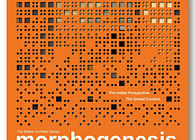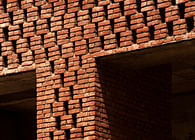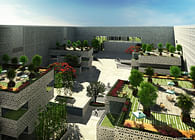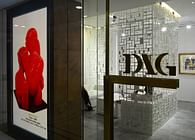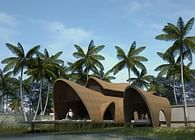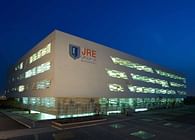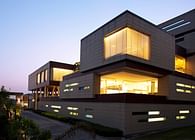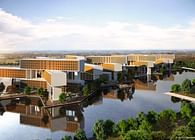
New Delhi, IN
The British Council located in the heart of New Delhi, is a design collaboration of grandmasters, Howard Hodgkin, Charles Correa and Mahendra Raj. Introduced at a time when books were sporadic and expensive, the British Council library along with its unparalleled collection of books, audio books and internet stations made learninginteractive. Today, the British Council as an institution, is considered as the first point of contact for those who seek higher studies in the UK and for the propagation of the English language in the Indian context. It has evolved from being a conventional library to a centre for knowledge dissemination, culture and networking. It is also a place that hosts varied art and cultural programmes; British, Indian and Global.
Over the years, research has become digitized and the space was no longer fulfilling its original purpose. The demand for such a space was the brief that Morphogenesis deciphered as the need for redesign. Breaking away from the general assumption of break and redo, Morphogenesis decided to revamp the old-standing structure to create a flexible, multi-tasking setting that intertwines technology, culture, education and work.
The project is viewed through the lens of adaptive reuse, where conservation of the original design story that carries the large Banyan Tree mural by Howard Hodgkin on the exterior, was integral to the new intervention. The building is replete with symbolism on the outside, as well as on the inside. This continuum of history has been maintained through the symbolism, yet new systems for contemporary work formats have been introduced; for example, the hoteling concept of a workstation, remote working, hot-desking and biophilia for indoor air quality etc. Most spaces work as co-working and flex spaces, such as the library, that can be converted into a Town Hall and play areas, that allow for additional collaboration. This adaptive re-use design led to the creation of an agile workforce philosophy as a result of dynamicand need based allocation of space, services and resources.
An auditorium designed for 180 people fitted with state-of-the-art facilities, is both an instructional and a performance auditorium. The redesign for the same is founded on the understanding, that art leaves a lasting impression, and adds character to the built form. The enhancement adds to the livability quotient of the space that sits well within the firm’s belief that new work paradigm has blurred boundaries between work life, social life and personal life - essentially, the Live, Work and Play ethos.
The design approach employed is tactile in nature, with a strong emphasis on sustainability, the use of regionally sourced and manufactured materials infuses a local tinge to the project. Recycled materials, reclaimed wood along with LEED-certified materials and fixtures have been incorporated to improve occupant well-being. The use of sensors help optimize the lighting usage by turning systems on and off as people enter and leave spaces, ensuring energy is not wasted on lighting areas that are not in use. Along with energy efficiency,here a work philosophy and design intent actively resulted in the actualization of a new idiom in design and an augmented workforce with a judicious use of materials. This has resulted in the British Council being awarded a LEED Platinum rating under the Commercial Interiors category by US Green Building Council, making it the first British Council worldwide, to be certified as USGBC LEED Platinum.
With this interior retrofit project for the illustrious British Council building, Morphogenesis honours the site’s past, while supporting the present and innovating for the future.
Status: Built
Location: New Delhi, IN
Firm Role: Architects



